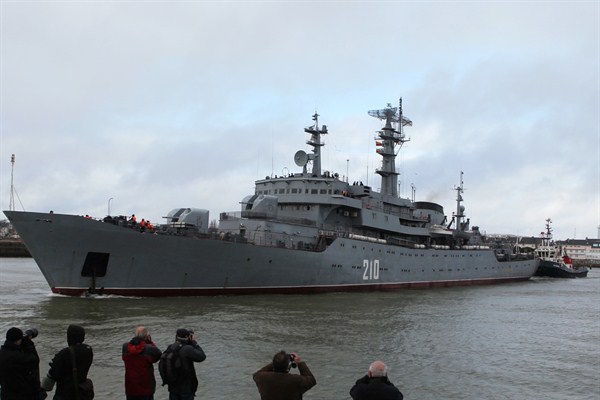Russia has been skillfully using its ground forces to support pro-Moscow separatists in Ukraine and keep NATO guessing over Russian intentions in that country, the Baltic states and Moldova. In addition, Moscow’s air force has for the first time since the Cold War sustained a high tempo of operations in NATO’s vicinity for more than a year. But the revival of the Russian navy has been another key element of Moscow’s use of military force to press its great power status.
Naval considerations were actually a major factor driving Moscow’s insistence on maintaining control over Crimea. The naval base at Sevastopol provides the Russian fleet with key access to the Mediterranean and, through it, the Balkans and Middle East. But the re-emergence of the Russian navy predates the Ukraine crisis. Since the 2008 war with Georgia, Russia has maintained a continuous strategic patrol of its nuclear missile submarines, deployed ships to fight pirates in the Gulf of Aden and conducted high-profile exercises in the Western Hemisphere, the Mediterranean and the Asia-Pacific region. The current situation contrasts with the general absence of Russian warships from the high seas a decade ago.
Last week, the Russian fleet conducted its first-ever joint naval drill with Egypt in the Mediterranean. The exercise, which began on June 7 and ended on June 14, followed President Vladimir Putin’s landmark visit to Egypt this February. After that trip, Putin’s first to Egypt in over a decade, the two governments finalized a $2 billion arms deal, including Egyptian purchases of Russian MiG fighter jets and air-defense systems. The naval exercise off Alexandria was the latest step in Putin’s campaign to deepen ties with Egypt, even as Cairo’s relations with Washington remained strained over human rights concerns and other issues.

